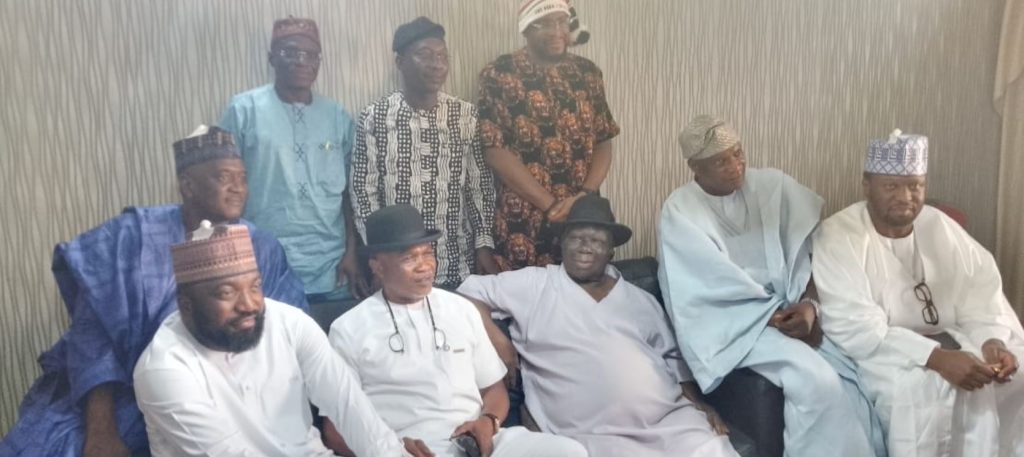Chief Edwin Clark, a venerable elder statesman, and former Ogun State Governor, Segun Osoba, have lent their voices to the clarion call for a fundamental shift in Nigeria’s governance structure.
They made this statement as a resolute endorsement of the proposed transition from the presidential to the parliamentary system of government.
At the heart of this movement lies a fervent belief in the efficacy and practicality of parliamentary governance.
They stated this during a recent meeting at Chief Clark’s residence in Abuja, where luminaries of the political landscape convened to deliberate on this pivotal issue.
Among them was Kingsley Chinda, the Minority Leader of the House of Representatives, who spearheads the legislative push for constitutional amendments.
Reflecting on the inadequacies of the current presidential model, Chinda articulated,“The present style of presidential system that we are running in Nigeria is too cumbersome for our country… cannot in any way be repaired as we stand today.”
He emphasized the need for a governance framework that fosters direct accountability and grassroots engagement, hallmarks of the parliamentary system.
Highlighting the disconnect between leaders and the governed, Chinda lamented, “A governor and president can run the state or the country for four years without talking to Nigerians… We must have a system where public office holders… will be more accountable to you, the people.”
Chief Clark, venerable in his wisdom and stature, echoed these sentiments, affirming that “the restructuring of Nigeria can no longer wait, otherwise there will be no Nigeria.”
His words resonated with a sense of urgency, underscoring the imperative for proactive reform to salvage the nation’s unity and progress.
Joining the chorus of voices advocating for change, former Governor Segun Osoba emphasized the economic prudence of the parliamentary system. He decried the excessive centralization of power, asserting, “the centre is too loaded.”
Osoba underscored the importance of decentralization, citing examples ranging from education to security, where local autonomy could yield more effective outcomes.
“How can somebody in Abuja stay here and want to control the primary education… in Bayelsa, in Ogun State?” Osoba queried, underscoring the diverse cultural landscapes that demand tailored governance solutions.
He emphasized the intrinsic link between local knowledge and effective governance, particularly in addressing pressing issues like security.
As the debate rages on, fueled by the passion and conviction of visionary leaders like Clark and Osoba, Nigeria stands at a crossroads.
Do you want to share a story with us? Do you want to advertise with us? Do you need publicity for a product, service, or event? Contact us on WhatsApp +2348183319097 Email: platformtimes@gmail.com
We are committed to impactful investigative journalism for human interest and social justice. Your donation will help us tell more stories. Kindly donate any amount HERE




